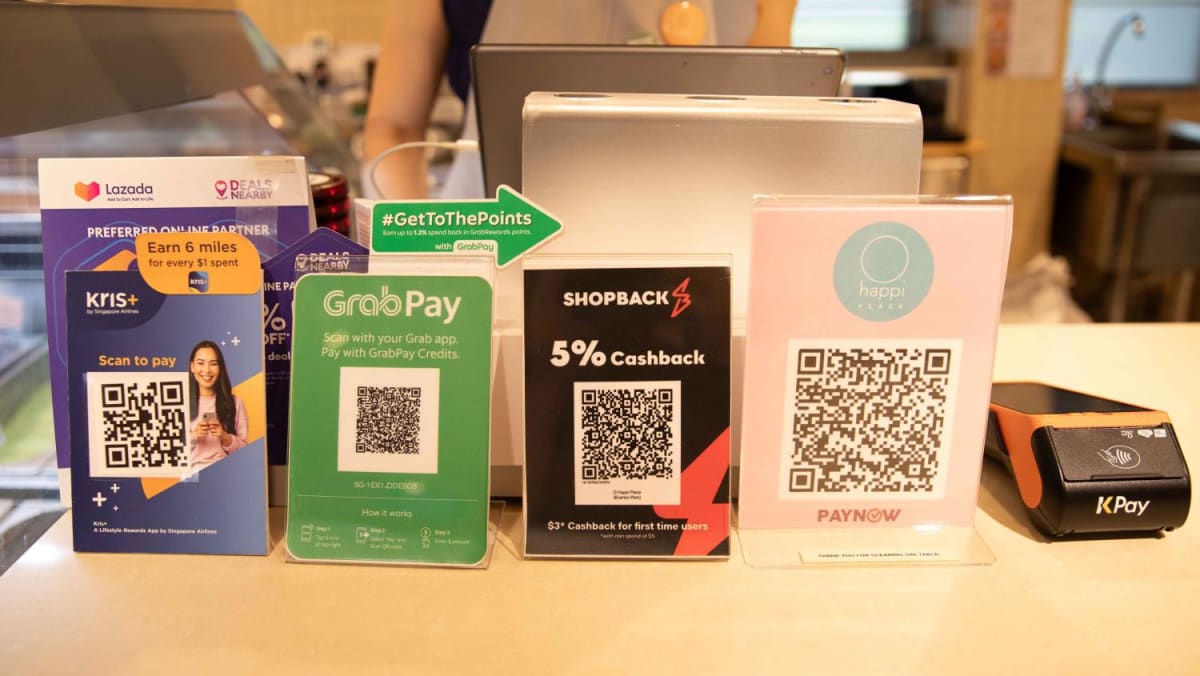
Each week, TODAY’s long-running Big Read series delves into the trends and issues that matter. This week, we look at how consumers and businesses can adapt to banking and e-payment service disruptions. This is a shortened version of the full feature, which can be found here.
 By
By
Nikki Yeo
The outage follows two DBS online banking and payment services disruptions earlier this year, after which the Monetary Authority of Singapore (MAS) imposed an additional capital requirement on DBS.
The prevalence of such service disruptions has inevitably raised questions on how reliable and safe the e-payment landscape in Singapore is, amid the nation’s ongoing push to become a more cashless society.
Experts say that while bank disruptions are undesirable, it offers an opportunity to learn valuable lessons on remaining resilient in an e-payment landscape, as banks, businesses and consumers can all do their part.
WHY IT MATTERS
In a written reply to a parliamentary question on major banking disruptions that have lasted more than an hour in the last five years in April this year, then Senior Minister Tharman Shanmugaratnam said that seven banks have reported a total of 17 disruptions to their digital banking services that lasted more than one hour since 2018.
While digital banking disruptions are not new, Ms Lim May-Ann, director of the Fair Tech Institute at Access Partnership said that the latest disruption demonstrated a “vulnerability that Singapore and our banks need to review and address”.
To prevent this from happening again, “a rethink and redesign of the internal banking information system architecture” may be needed.
“How robust were the failover systems and what worked or did not work in this particular outage?” was one question to consider, said Ms Lim.
MAS said on Oct 19 that both DBS Bank and Citibank were unable to fully recover their systems within the required timeframe. Under MAS’ requirements, the unscheduled downtime for a critical system affecting a bank’s operations or service to customers must not exceed four hours within any 12-month period.
Mr Wong Nai Seng, regulatory strategy leader of consultancy firm Deloitte Southeast Asia, said that notwithstanding regulatory requirements for payment service providers to maintain robust systems, brief service disruptions may nonetheless occur from time to time due to technical glitches, cyber attacks or other incidents.
Noting that “no IT system is infallible”, MAS said: “Banks and customers should have contingency measures in the event of service disruptions caused by IT outages.”
THE BIG PICTURE
As digital payments become more of a norm here and service disruptions can and will occur, remaining resilient in a digital payment landscape involves building better habits and preparation on the part of consumers and businesses, experts told TODAY.
To ensure business continuity in the immediate period of a service disruption, fail-safe measures are needed, they added.
Dr Lee Yen Teik, a senior lecturer of Finance at the National University of Singapore (NUS) Business School said that businesses should maintain a backup manual system such as cash or paper-based transactions.
They could also enhance the resilience of their payment system by implementing real-time monitoring for immediate disruptions alerts.
Ms Sidney Lim, co-founder of NearesTTen Curated Thrift Store, chose to let 13 affected customers walk out with their items without paying, anticipating that they would be able to transfer the owed payment once digital banking services were restored.
“We requested them to leave us a direct message on Instagram, including a photo of their items and the total price. Our part-timer also recorded down all the Instagram handles (of those) who owed us the payment as it would be easier for us to keep track and tally the sales,” she said.
While some businesses resorted to manual tracking during the banking services disruption, others said they were mostly able to continue with business as usual, with customers paying via alternative payment modes.
Mr Colin Chen, founder of cafe Hello Arigato, which has four outlets across Singapore that accept only cashless modes of payments, said that its business was largely unaffected as customers used cards from other banks or opted to pay via GrabPay, an e-wallet.
“Once customers realised the payments weren’t working they swapped to another card that worked, so we’re lucky that there were other banks or credit card providers that weren’t affected.”